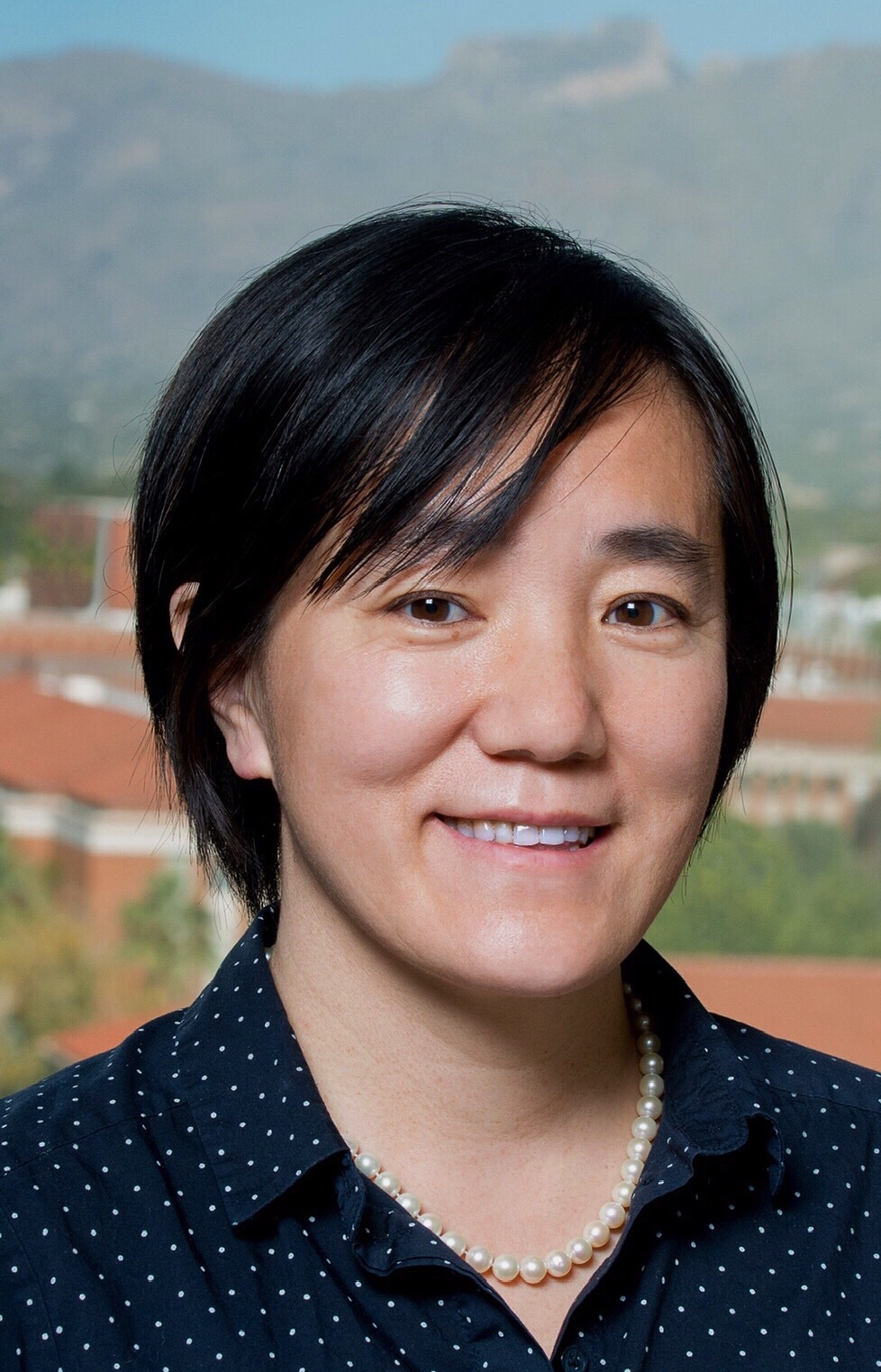Hao Helen Zhang is a Professor in the Department of Mathematics at the University of Arizona, as well as a faculty member of Statistics Graduate Interdisciplinary Program (GIDP). Helen Zhang obtained a PhD in Statistics from University of Wisconsin at Madison in 2002. She was assistant and associate professor of Statistics at North Carolina State University from 2002–11. Her research areas include statistical machine learning, high-dimensional data analysis, nonparametric smoothing, and biomedical data analysis. With Bertrand Clarke and Ernest Fokoué, she is the author of the book Principles and Theory for Data Mining and Machine Learning. Helen is currently Editor-in-Chief of ISI’s Stat, and Associate Editor of Journal of the Royal Statistical Society Series B, Journal of the American Statistical Association, Journal of Computational and Graphical Statistics, and Statistical Analysis and Data Mining. She is a Fellow of IMS and ASA, and an elected member of the International Statistical Institute.
Helen’s Medallion lecture will be delivered at the Joint Statistical Meetings in Denver, July 27–August 1, 2019:
Breaking the Curse of Dimensionality in Nonparametrics
The “curse of dimensionality” refers to sparse phenomena of high-dimensional data and associated challenges in statistical analysis. Traditional nonparametric methods provide flexible modeling tools to discover nonlinear and complex patterns in data, but they often experience theoretical and computational difficulties when handling high-dimensional data. In the modern computer age, rapid advances have occurred in nonparametrics to break the curse of dimensionality and enable sparse, efficient, and interpretable function estimation for high dimensional regression and classification problems. A variety of state-of-the-art nonparametric methods, theory, and scalable algorithms have been developed to extract low intrinsic dimension from data and accommodate high-dimensional data analysis more effectively.
In this talk, I will survey some recent works of nonparametric methods in model selection, dimension reduction, curve estimation, and inferences for high dimensional regression, classification, and density estimation problems. Related issues and open challenges will be discussed as well. In addition, there is intrinsic connection between nonparametric and statistical machine learning. The talk will also highlight a variety of nonparametric machine learning algorithms widely used in modern data science.

Comments on “Medallion Lecture Preview: Helen Zhang”